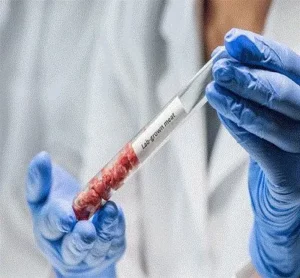Possession of “illegal drugs” can be charged as a misdemeanor or a felony. A felony is a more severe charge. The prosecutor’s choice will depend on the type of drugs involved, quantities, and the activities surrounding possession, such as intention to distribute. Sometimes, possession of a specific type of drug can also lead to felony charges.
How are the Drugs Classified?
Each state also has its own laws that pertain to the use, manufacture, and distribution of drugs. It is important for anyone charged with a drug crime to understand how federal and state drug crimes differ and intersect. Controlled substances are often classified at different levels or “schedules” under federal and state statutes.
Typically, these groupings are based on, or adopt outright, the Federal Controlled Substances Act (CSA), which classifies drugs based on their recognized medical value and their potential for addiction and abuse. Most state laws generally recognize five schedules:
- Schedule I includes the most dangerous drugs (such as heroin)
- Schedule V – the minimum.
- Many drugs, like morphine, have genuine medical value, but they are highly addictive, so they fall somewhere in the middle.
Contact a Philadelphia DUI Lawyer and discuss your concerns. He can conduct an in-depth case evaluation and explain the details.
What does “possession” Mean?
Possession means that you knowingly control a drug or substance. It does not matter whether these drugs are yours. Knowledge means that you have a fundamental understanding of what the drugs are and know what they are intended for, even if you deliberately turn a blind eye to their existence. Control means that you have the ability and opportunity to exercise some control over them.
The Type and Quantity of Drugs

In various cases, the number of drugs that the defendant possesses might result in a felony charge instead of a misdemeanor. In a majority of states, possession of a certain number of narcotics falling under Schedule I or II may result in a felony. In contrast, possession of lower scheduled, non-narcotics may result in misdemeanor charges.
Personal Use or Intent to Sell?
Possession of drugs for personal use is usually a lesser charge than possession of drugs for sale. The primary difference in the penalty itself reflects the legislator’s view of the harm caused by each crime: drug users are victims of drug traffickers. Users only hurt themselves while a single seller has the potential to hurt a large number of people.
Possession of controlled drugs is a crime. In states with strict drug possession laws, possession of a small number of drugs can be charged as a felony and possession of more hazardous drugs (such as heroin or cocaine) can be charged with a felony.
Also, if you are caught with large amounts of illegal drugs, in many states you are more likely to be charged with possession of illicit drugs and intent to distribute.
This is because the government takes the view that it is unlikely that you would use a large amount of drugs for yourself. Because the illegal sale of drugs is a more serious crime, possession of drugs to sell them is often a felony charge.
- Aggravating Circumstances
In many states, if the violation involves one or more “aggravating circumstances” or “aggravating factors,” prosecutors can charge the defendant with a felony, even if possession of the drug in question would otherwise be a misdemeanor.
The choice of these factors reflects the perception of legislators that crimes that occur under these circumstances may be more harmful than without these factors, such as when drugs are sold to or near children.
The aggravating factors for each state are outlined in the state’s criminal code. The statutory code usually includes, but are not limited to, the following types of aggravating factors:
- Repeat offenders – people who have been convicted of drug crimes previously
- In schools, near schools, on school buses, or at school bus stops
- In public buildings, parks, swimming pools, housing units, or on public transportation
- On or near the property of rehabilitation facility
- In the presence of a minor, usually defined as a person under the age of 18
- While in commission of another crime, such as a robbery
- Arrest and bail
When you are arrested, the officer must tell you that you have the right to hire an attorney. This right allows you to obtain representation after arrest and talk to a lawyer. It is always good to exercise this right and obtain legal help before talking to the police.
You can be released directly by the police, or you can be released on bail, depending on the drugs and their quantity, as well as your circumstances (for example, if you have a prior criminal record).
The police have a process for releasing those charged with drug crimes, all of which require you to appear in court when necessary. If released by the police, you may be subject to certain conditions. For example, these conditions may prohibit you from participating in certain activities.
If you are released on bail, you will be taken to a judicial officer within 24 hours of being arrested to set the terms of your release. Not only will a legal professional be able to explain what to do and what not to do when you are released, but they can also start handling your case.
A criminal drug charge will affect your life and future opportunities. Hiring a Philadelphia Criminal Lawyer is an essential step in the fight against drug charges. Being accused of even simple drug possession can be a painful experience, especially if this is your first criminal charge. It is essential to seek professional help to protect your rights as early as possible.
